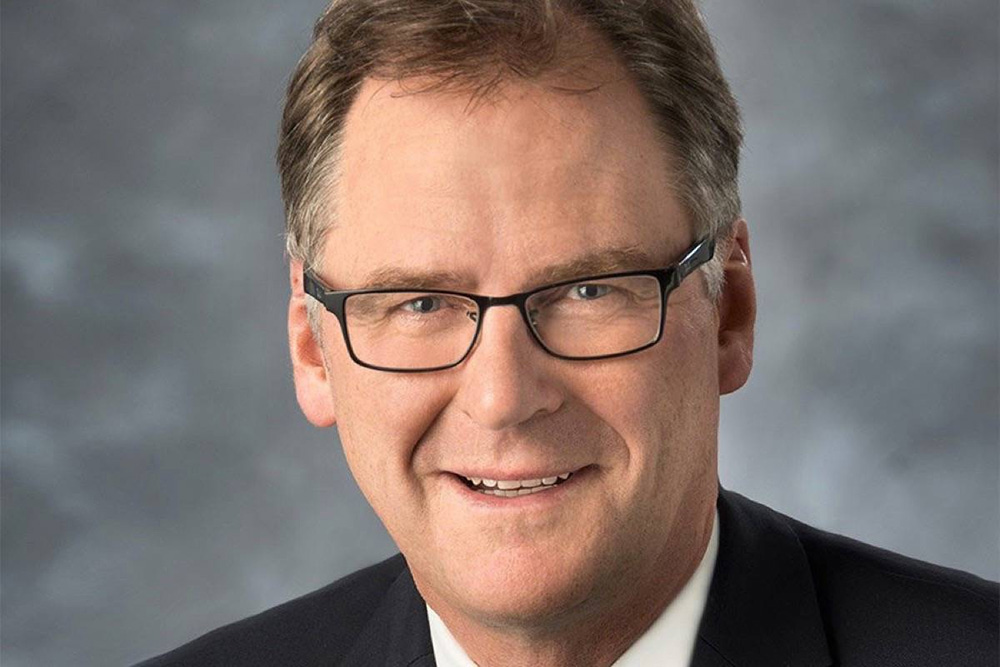As a British Columbia legislature committee begins its work to appoint an ombudsperson, some people who have had interactions with the office think it’s time for a hard look at whether it is fulfilling its mandate and providing value to citizens.
One of them is Ken McDonald, a retired engineer living in the town of Comox on Vancouver Island. He was disappointed when he sought help from the ombudsperson’s office resolving a dispute he had with local government.
“If you’ve never had experience with it, you assume it’s an independent body whose job is to ensure fairness,” McDonald said.
That’s not true, he said. “What we have in British Columbia is an association of apologists for the government bodies.”
The current ombudsperson is Jay Chalke, whose six-year term ends on July 1. Chalke declined an interview request and a spokesperson for his office said that while the committee’s work is under way Chalke wouldn’t confirm whether or not he is seeking reappointment.
The committee met once in early March but has yet to advertise seeking applicants for the job.
Created 40 years ago, the ombudsperson’s office in B.C. investigates some 8,000 complaints a year from the public about unfair government administration. Its jurisdiction includes provincial government ministries, Crown corporations, hospitals, health authorities, public schools, colleges, universities, local governments and regional districts.
In the last few years, the government has also tasked it with conducting investigations under the Public Interest Disclosure Act, whistleblower legislation aimed at protecting public sector employees who report allegations of wrongdoing.
The recommended budget for the office for 2021-2022 is $10.8 million, an increase of about 15.3 per cent from the previous year.
In fiscal 2019-2020, the most recent year for which figures are available, Chalke was paid $320,904.
McDonald said the office needs to be given more teeth, and it would help to have an individual leading it who is willing to push harder. “I’d like to see a fresh face.”
In McDonald’s case, the dispute he complained to the ombudsperson’s office about was over drainage pavers he wanted to install in front of his home. As an engineer, he was aware that they are allowed in many other municipalities, and people in some jurisdictions even receive incentives or encouragement to put them in, since they help manage water runoff.
“They’ve become pretty much the standard,” McDonald said.
In Comox, however, the town doesn’t allow them on their boulevards.
When he complained to the ombudsperson’s office about what he saw as a ridiculous policy, the investigator told him that the town has the authority to decide what it does and doesn’t allow on its portion of the boulevard.
He felt the office did a poor job investigating the issue and had been little help in his fight against city hall. It has guidelines for resolving disputes with local governments, but ultimately didn’t follow them or enforce them, he said.
“The reality is, there’s a power imbalance,” he said. “They’re not there to solve your problem, and they can’t solve your problem. They’re there to provide a buffer for the government.”
People who seek help from the ombudsperson need to feel the process itself was fair and reasonable, and the office should be doing more to assess whether people are satisfied with the service they get, he said, suggesting they introduce customer satisfaction surveys.
Out of 23 reviews of the ombudsperson’s office on Google, it has an average rating of 1.5 stars out of five. While some reviews are positive, most are very negative. A few said it acted like “another arm of the government” and several said the office was a “joke” and a waste of money that should be shut down.
In February, when the legislature’s finance committee was looking at the budget for the ombudsperson’s office, Chalke said it’s a “difficult exercise” to assess people’s satisfaction with the service they got from his office.
“What often happens is many people are quite outcome-focused,” he said. “If we agree with them, if we support their complaint that they’ve been treated unfairly, then they feel like the ombudsperson has done a good job. If we side with the public authority — of course, we’re neutral on these questions — then maybe our service wasn’t so great.”

McDonald said it may be that the office’s lack of authority to order changes is a product of the legislation that guides it. But if that’s the case, they should be doing more to advocate for increased powers, he said.
The office could be doing so much more, he added. “It’s important, and I really don’t feel it has its mandate or its purpose or its goals pointing in the right direction.”
The most recent annual report from the ombudsperson’s office provides another view. It covers the 2019-2020 fiscal year and provides examples of success resolving complaints.
“As a result of our work, public bodies changed the way they deliver public services and people’s lives changed as a result,” the report said.
“A grandmother on income assistance caring for her granddaughter was reinstated for health and dental coverage she had previously been denied, a man living with mental illness was given a fairer hearing to review his involuntary hospitalization after we found flaws in the process, people denied basic services such as heat and light received these necessities following our investigations.”
The ombudsperson’s office also publishes investigative reports. In the last year or so it has weighed in on problems with ministerial orders made in response to the COVID-19 pandemic, errors with the Education Ministry’s 2019 provincial exams, and an update on phone wait times experienced by people calling for help with income or disability assistance.
Early in Chalke’s mandate, he was thrust into what remains the largest and most contentious issue of his term when the provincial government assigned him to investigate the botched firings the Health Ministry made in 2012.
The result was a nearly 500-page report released shortly before the 2017 provincial election. It found the firings were unjustified and the process had been mishandled, vindicated the people who had been fired and led to financial compensation for them.
While some of the people fired felt grateful to Chalke and believed his office had done a thorough job, others thought the investigation and the report hadn’t gone nearly far enough.
For Rebecca Warburton, who was among those fired, a main concern is that Chalke stressed there had been no political interference leading up to the firings, but he had not done much investigating to test whether or not that was true.
“He didn’t push on the political interference, and to me that’s the core of the story,” said Warburton, who is now retired. He could have subpoenaed the key politicians and drug company representatives, she added, but he chose not to.
It was also a problem that all testimony was given in private, she said. “It wasn’t sufficient. It wasn’t what you’d get in a public inquiry or a trial.”
With no transparency about what others had told the investigators nor an opportunity to cross-examine witnesses, she said, it was impossible to sort out what was true and what wasn’t.
And while she found the people conducting the investigation were generally professional and thorough, Chalke was wrong when he decided early on that it was important not to lay blame for mistakes, Warburton said.
There’s value in looking at systemic issues, but there are also times when individuals need to be held accountable for their decisions and actions, she said. People who had done wrong weren’t identified in the report and many of them continued working for the government, she noted.
In the end, Warburton said, good people were fired, former colleagues were traumatized, bad actors kept their jobs, possible drug company involvement went unexamined and the politicians who were ultimately responsible were unscathed.
“He could have done a lot more and should have done a lot more,” she said.
The office needs a more independently minded person who is willing to stand up more decisively to the government, Warburton said. That’s tough for someone like Chalke who came to the position after a long time working inside the government and may be dependent on politicians for his next appointment.
“If I had a recommendation, I’d say the ombudsperson shouldn’t come from inside government,” she said. “On balance I’d say ‘no,’ I wouldn’t reappoint him. They should look for someone much more independent.”
The five-person committee to appoint an ombudsperson includes three NDP MLAs and two BC Liberal MLAs. It’s unclear how detailed a process the committee will undertake, especially if Chalke would like to be reappointed.
The committee’s chair, NDP MLA Janet Routledge, said deliberations are confidential and there is little she can say publicly at this point about the process or whether Chalke is seeking reappointment.
The committee’s mandate does not include seeking or receiving input from the public, she said. “I think there are other opportunities for that. It’s just not this committee at this time.”
As an MLA since 2017, Routledge said she’s become aware of the critical role the independent officers of the legislature play. Besides the ombudsperson, the independent officers include the auditor general, information and privacy commissioner, representative for children and youth, and others.
“They play a really important role,” she said. “All of them in one way or another hold the government to account and that’s an important function.”
BC Liberal interim leader Shirley Bond said that the ombudsperson’s role is critical and that she will await the committee’s work.
“I’m very confident that there will be a good look at both the work that’s been done by this ombudsperson and the decision will be a recommendation from that committee and I’m not going to speculate on the outcome,” she said.
“There will be a thorough review of the work that’s been done, the effectiveness of the current ombudsperson, and also look at what the office needs to be shaped and look like in the future.” ![]()
Read more: BC Politics
















Tyee Commenting Guidelines
Comments that violate guidelines risk being deleted, and violations may result in a temporary or permanent user ban. Maintain the spirit of good conversation to stay in the discussion.
*Please note The Tyee is not a forum for spreading misinformation about COVID-19, denying its existence or minimizing its risk to public health.
Do:
Do not: